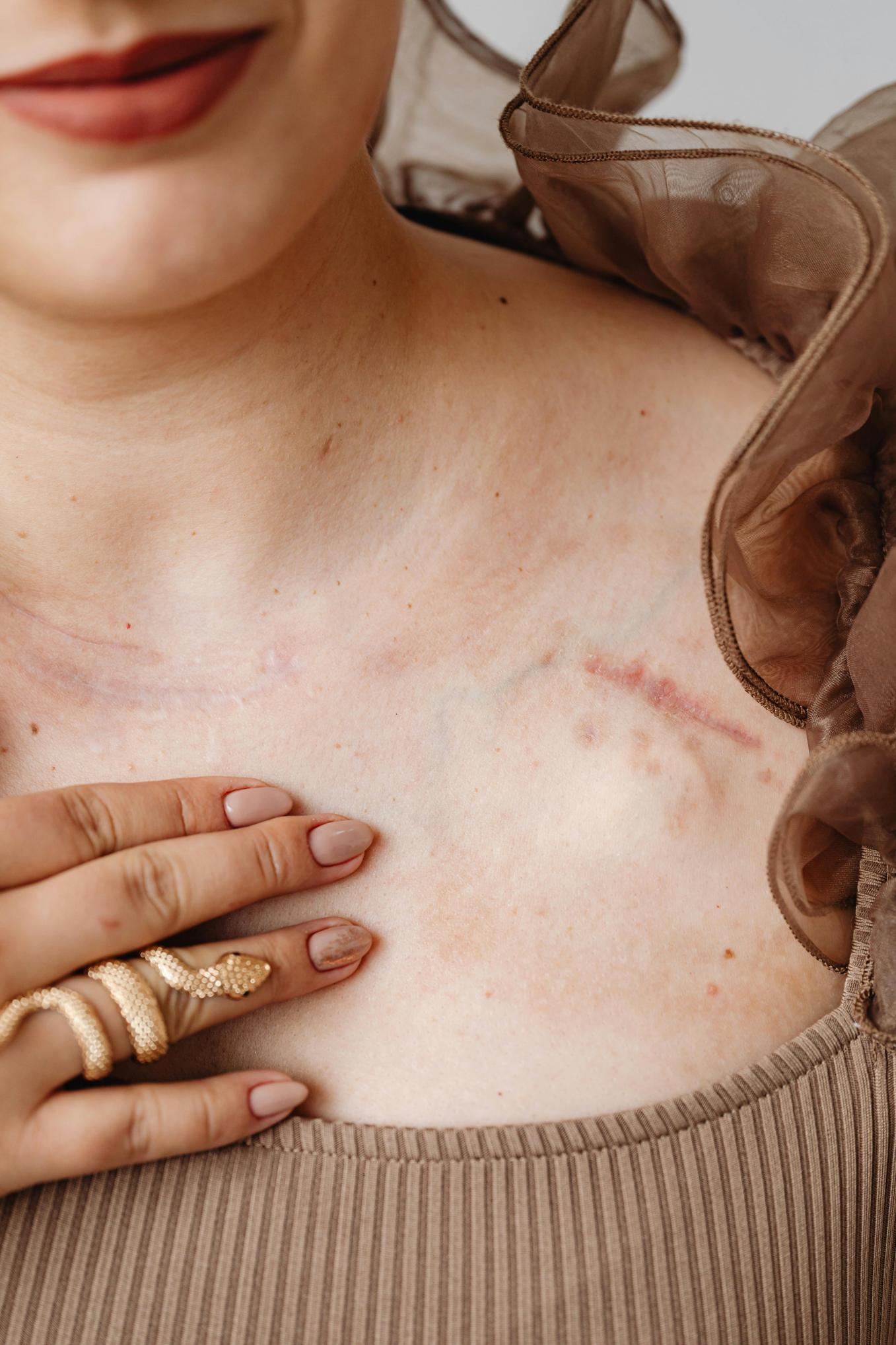Introduction
Lip rings can be a stylish accessory, but they often leave behind unwanted scars. Whether you’re dealing with a fresh piercing or an old one, understanding how to manage and treat lip ring scars is essential. This comprehensive guide explores the causes of lip ring scars, preventive measures you can take, and both home and professional treatments. We’ll also cover long-term care and maintenance strategies to ensure your lips remain smooth and scar-free.

Causes of Lip Ring Scars
Several factors can contribute to the formation of scars from lip rings. The primary reason is trauma to the lip tissue caused by the piercing. This trauma can arise from the initial piercing process or from constant irritation and movement of the jewelry. Additionally, improper aftercare can cause infections, leading to additional tissue damage and scarring.
Other contributing factors include allergic reactions to the metal in the jewelry and the body’s natural response to the foreign object. Some people are more prone to keloids, a type of raised scar, which can form around the piercing site. Understanding these causes can better prepare you to prevent and manage any scarring.

Preventive Measures
Prevention is always better than cure, especially when it comes to lip ring scars. The first step in preventing scars is to ensure that your piercing is done by a professional using sterile equipment. This minimizes the risk of infection and tissue damage right from the start.
-
Choose Hypoallergenic Jewelry: Opt for jewelry made from hypoallergenic materials like surgical steel, titanium, or niobium to prevent allergic reactions.
-
Follow Aftercare Instructions: Clean the piercing with a saline solution twice daily and avoid touching it with dirty hands.
-
Avoid Irritation: Stay away from acidic and spicy foods that could irritate the piercing. Also, avoid unnecessary movements of the lip ring.
-
Monitor for Infections: Watch for signs of infection such as redness, swelling, and discharge. Promptly treat any infections to prevent further complications.
-
Don’t Rush Jewelry Changes: Give your piercing ample time to heal before changing the jewelry, usually a minimum of 6-8 weeks.
By following these preventive measures, you significantly reduce the risk of developing scars from your lip ring.

Home Remedies for Minor Scarring
Even with the best precautions, some minor scarring may occur. Fortunately, there are several home remedies that can help minimize the appearance of these scars:
-
Silicone Sheets or Gels: These are effective in reducing scar thickness and improving texture. Apply them as per the product’s instructions.
-
Vitamin E Oil: Known for its skin healing properties, vitamin E oil can be massaged onto the scar to improve its appearance.
-
Honey: Apply raw honey to the scar as it has natural antibacterial properties and helps regenerate skin tissue.
-
Aloe Vera: Its anti-inflammatory properties can help reduce swelling and redness. Apply fresh aloe vera gel directly to the scar.
-
Tea Tree Oil: Known for its antibacterial and healing properties. Dilute with a carrier oil and apply to the scarred area.
These home remedies can be effective for minor scars and help improve the overall appearance of the skin around the lip ring.
Professional Treatments for Severe Scars
For more severe scarring, professional treatments may be necessary. Dermatologists and skincare professionals offer various options:
-
Laser Treatment: Helps to remove the top layers of the scarred tissue, promoting new skin growth. Multiple sessions may be required.
-
Chemical Peels: These treatments involve applying a chemical solution to the scar, which exfoliates the skin and promotes new tissue formation.
-
Microneedling: Involves using fine needles to create micro-injuries in the scar tissue. This process stimulates collagen production, which improves the texture and appearance of scars.
-
Steroid Injections: Effective for reducing the size of keloid scars, making them less noticeable.
-
Surgical Removal: In extreme cases, scars can be surgically removed by a dermatologist or plastic surgeon.
Consulting with a healthcare professional will help you determine the best course of action for severe scarring, as personalized treatment plans are often more effective.
Long-term Care and Maintenance
Once you’ve treated your scar, maintaining the health of your lips post-treatment is crucial to preventing future scars and ensuring the longevity of your results. Here are some essential tips for long-term care:
-
Regular Moisturization: Keep your lips hydrated with lip balms that contain essential oils and vitamins.
-
Sun Protection: Use lip balm with SPF to protect your lips from sun damage, as UV exposure can worsen scars.
-
Avoid Repeated Trauma: Limit the number of times you remove and insert the lip ring to prevent ongoing tissue damage.
-
Healthy Diet: A diet rich in vitamins and minerals aids in skin healing. Consume foods high in vitamins A, C, and E.
-
Periodic Check-ups: Regular visits to a dermatologist can help monitor your skin’s health and address any issues promptly.
Long-term care not only helps in maintaining the appearance of your lips but also ensures that any potential complications are avoided.
Conclusion
Lip ring scars, while common, can be effectively managed and even prevented with the right knowledge and care. By understanding the causes, taking preventive measures, and using both home and professional treatments, you can maintain the aesthetic appeal of your lip piercing. Long-term care is equally important to ensure your lips remain healthy and free from scars. Whether you’re a new piercing enthusiast or someone dealing with old scars, this guide provides actionable steps to achieve and maintain scar-free lips.
Frequently Asked Questions
What are the common causes of lip ring scars?
Common causes include trauma from the initial piercing, improper aftercare, infections, allergic reactions to the jewelry, and the body’s natural tendency to form keloids.
How can I prevent my lip ring from scarring?
Prevent scarring by using hypoallergenic jewelry, following aftercare instructions, avoiding irritation, monitoring for infections, and not rushing to change the jewelry.
What treatments are available for severe lip ring scars?
For severe lip ring scars, options include laser treatment, chemical peels, microneedling, steroid injections, and surgical removal. Consult a dermatologist for personalized treatment advice.
